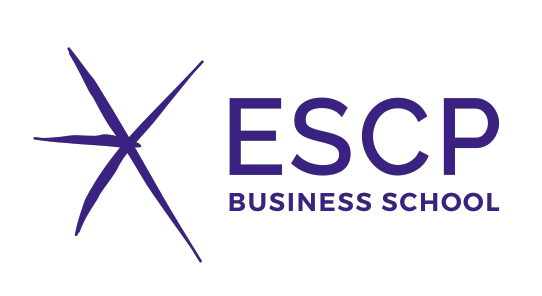
What qualities does a CEO need to succeed? Do self-confidence, ego, vision and personality still rank as the most prized traits? Are great leaders those who act boldly, shaping companies in their own image with little tolerance for failure?
“No,” says Professor Ben Voyer, a professor of behavioural science at ESCP Business School, which, each year, teaches responsible leadership to over 9,000 students and 5,000 managers across six European campuses.
“These attributes belong to a bygone age, where some C-suites operated almost on feudal lines: the CEO assuming the position of an all-powerful king or queen with his or her employees playing the role of subjects,” says Voyer.
He asserts that CEOs today are radically different from leaders of thirty years ago. While they are equally passionate, decisive, and target-orientated, businesses’ top-level decision-makers in 2023 are more likely to prioritise empathy, compassion and collaboration than their predecessors. But why?
Voyer, who has been studying social psychology, behavioural science and organisational psychology in the workplace for 15 years, says that a softer approach to leadership has been championed by millennial leaders, who are more inclined “to nurture and empower their staff, rather than dominate them.”
Perhaps most crucially, Voyer believes that a sea change in leadership styles has come about due to the highly complex business and regulatory landscape that CEOs must navigate from day to day.
He explains: “Corporate shareholders demand that organisations have highly developed environmental, social, and governance frameworks in place. But this requires experts with specialist skills and arcane knowledge, which CEOs often don’t have.” The solution, as Voyer frames it, is to surround themselves with subject matter experts. “In order to get the best out of [a team], it often pays to adopt a consultative rather than a directive approach to leadership,” he continues.
From a behavioural psychology perspective, a consultative style that promotes collective rewards over individual ones is likely to create a healthier corporate culture that maximises efficiency by making use of individuals’ unique perspectives. An incomplete leader makes up just one part of a complete team.
Whatever leadership style is employed, Voyer says that the practice of ‘perspective taking’ – or stepping into the shoes of frontline employees – can be transformative.
[Google] has realised that the only way to break new ground is to engender a culture where failure is seen as a gateway to ground-breaking innovation
“Reality TV shows where bosses go undercover to test the temperature of their businesses is a powerful way of helping CEOs realise the impact that their style of leadership has on their employees, which can sometimes be negative,” he explains. “It also increases the perception of interdependency between frontline staff and senior managers by making CEOs realise that their success is dependent on the actions of others. That reframing can inspire positive change.”
In the fast-moving, data-centric world in which CEOs operate, failure is sometimes inevitable. But moving forward means ingraining a no-fear philosophy deep within the cultural fabric of an organisation. It’s a concept that’s gained traction in the technology sector, where Voyer points to Google as a trailblazer.
“Google’s outside projects team rewards developers with the same bonus whether they succeed or fail. Google does so because it has realised that the only way to break new ground is to engender a culture where failure is seen as a gateway to ground-breaking innovation further down the line.”
While this pioneering blueprint, which relies on a consultative leadership approach, is helping Google and other companies to stay one step ahead of their rivals, leadership strategies shouldn’t be set in stone.
Leadership is a science that is continuing to evolve. Voyer argues that when a new generation of leaders emerges, a more authoritative approach to leadership could return to the fore.
Ultimately, he predicts that contingency leadership which allows for movement and change will prevail. “Whatever challenges businesses face, in behavioural science circles, the ability to provide the right type of leadership to the right person, at the right time and in the right context, should be the central cog in any leadership roadmap.”
For more information please visit about.escp.eu

What qualities does a CEO need to succeed? Do self-confidence, ego, vision and personality still rank as the most prized traits? Are great leaders those who act boldly, shaping companies in their own image with little tolerance for failure?
“No,” says Professor Ben Voyer, a professor of behavioural science at ESCP Business School, which, each year, teaches responsible leadership to over 9,000 students and 5,000 managers across six European campuses.
“These attributes belong to a bygone age, where some C-suites operated almost on feudal lines: the CEO assuming the position of an all-powerful king or queen with his or her employees playing the role of subjects,” says Voyer.

